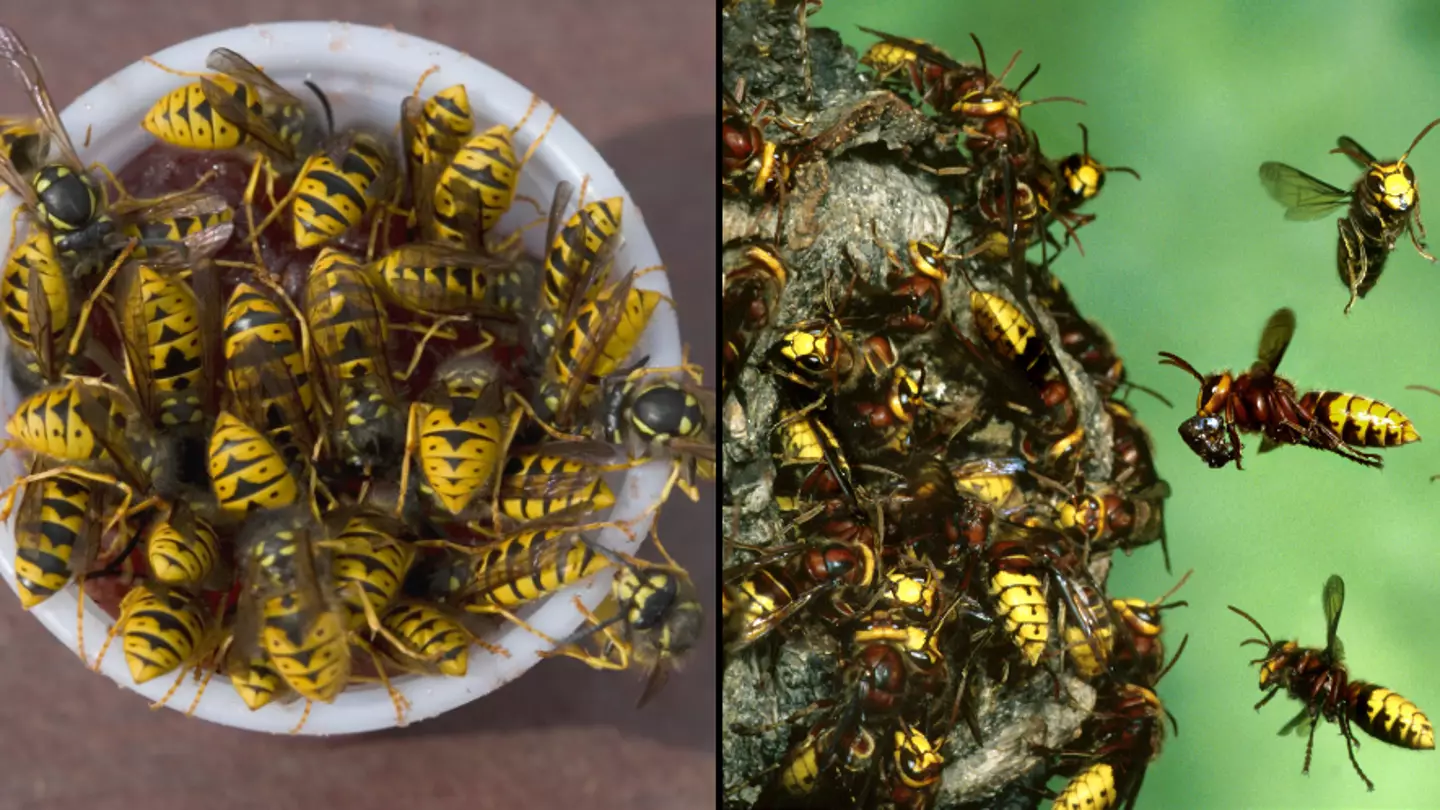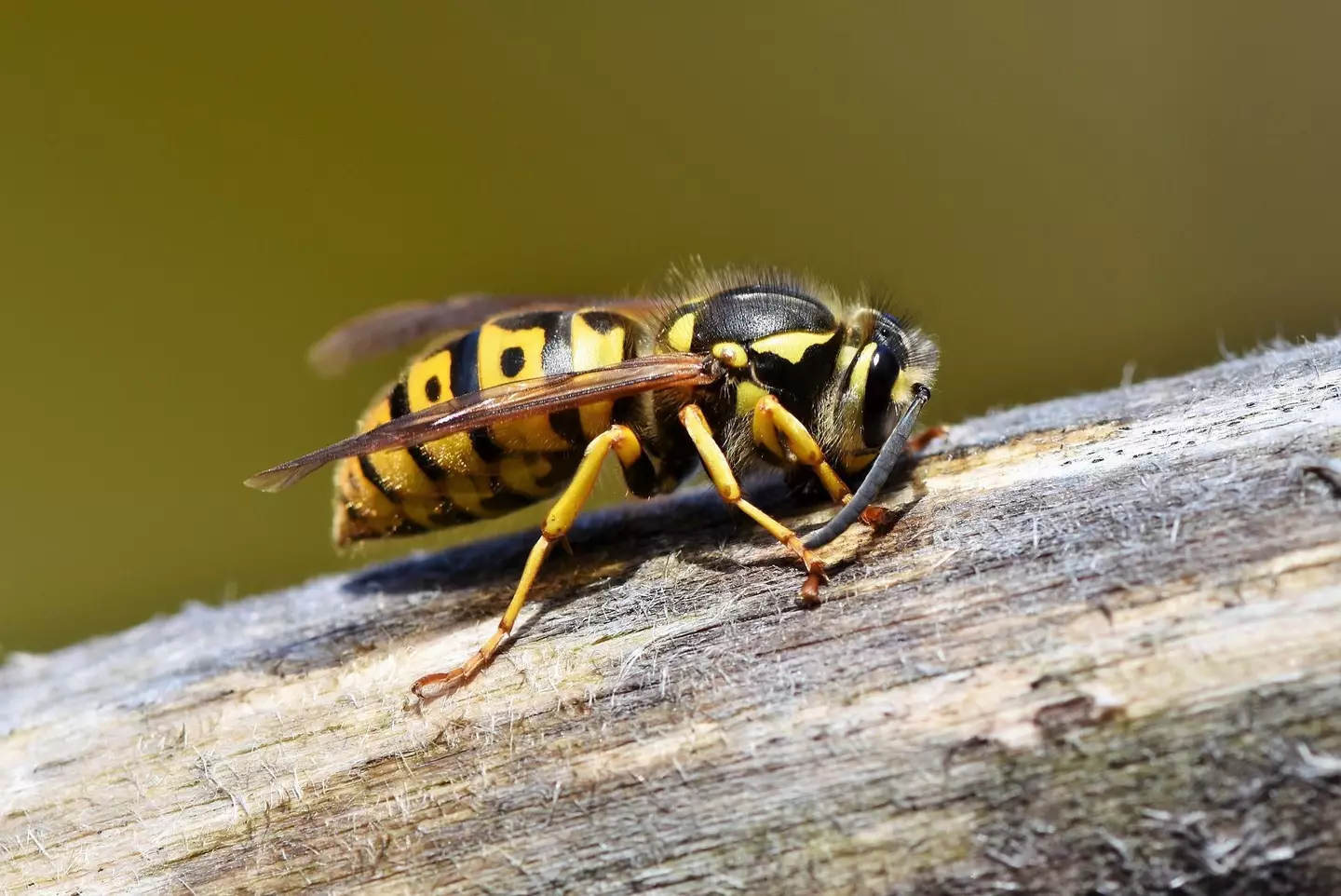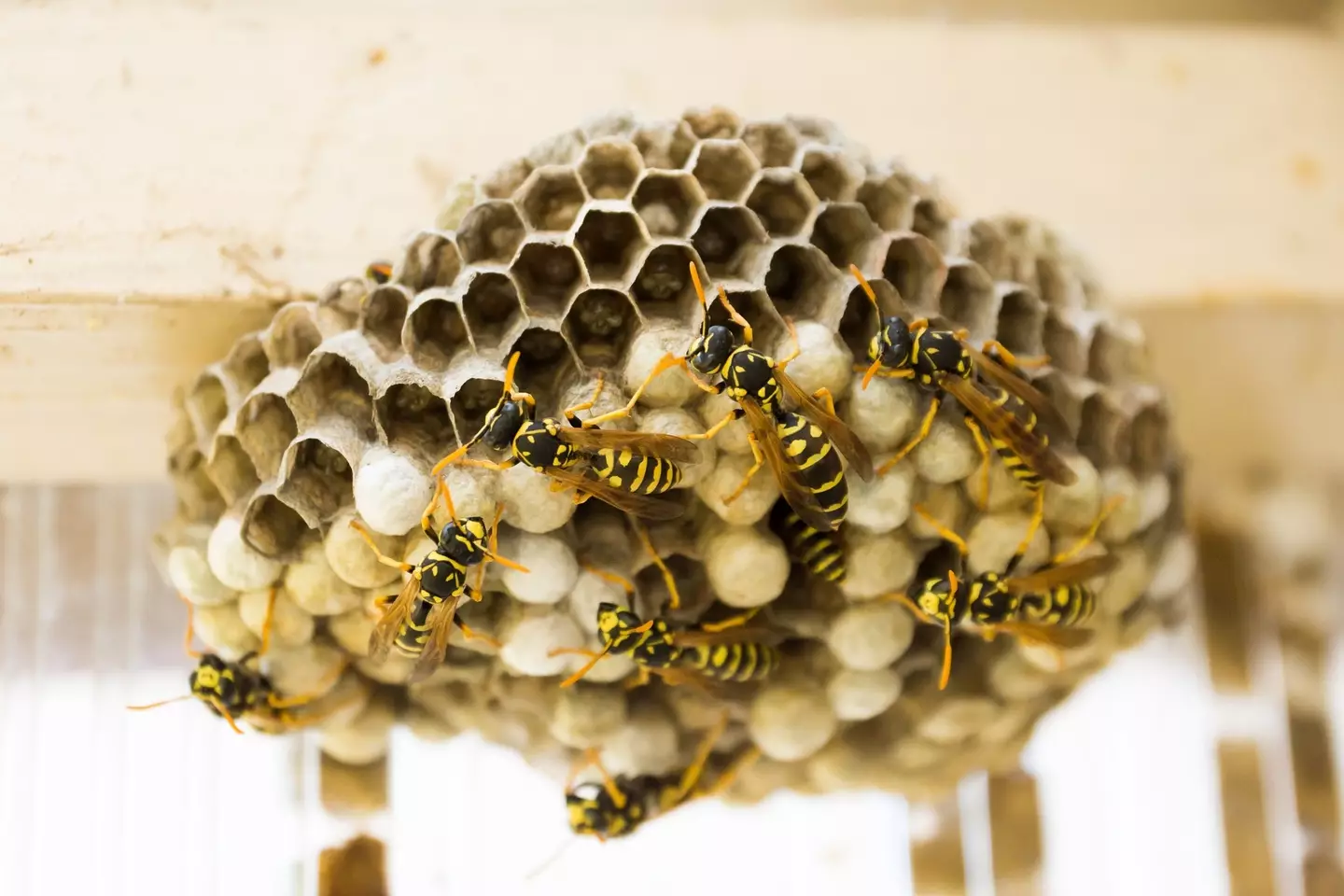
Huge swarms of wasps are set to invade the UK by the end of summer due to the heatwave. Because what could scream summer more than hordes of angry wasps...
Experts are now warning Brits to be prepared for the 'sugar-crazy' insects which will arrive in a late summer surge, driven by the end-of-season heatwave.

The number of wasps is expected to be significantly higher due to the warmer temperatures seen this year. The numbers of the wasp population can fluctuate year on year, dependent on the seasonal and weather changes which can determine their chance of surviving until spring.
Advert
As wasps choose to build their nests during the spring in trees, attics, and even underground, if there's bad weather then this can destroy their homes and decimate their survival rates. However, this year, the sweltering temperatures combined with less rainfall have instead given wasps the ideal environment to multiply.
Sebastien Pommereul, manager of the company Stop Wasps – Stop Pests, spoke to BFMTV: "This year, we are doing between 10 to 12 interventions a day. Last year, we were at five."
The onslaught of the insects has even led 2022 to be dubbed 'the year of the wasp' by exterminators.

The later months of summer are when wasps can become 'sugar-crazed' as their larva grow into full sized wasps, meaning they need to find a new source of energy. This is perfectly timed for when many of us will be enjoying summer BBQs or even sitting outside in a beer garden. Wasps are typically drawn to our sugary treats like prosecco, fizzy drinks and ice cream, and so are the perfect place for a fleet of wasps to fuel-up.
For those of us who end up unlucky enough to be stung by a wasp this summer, the NHS states: "Insect bites and stings will usually cause a red, swollen lump to develop on the skin. This may be painful and in some cases can be very itchy.
"The symptoms will normally improve within a few hours or days, although sometimes they can last a little longer."
However, for some it can cause an allergic reaction in some people that can still be considered 'mild'.
The NHS guides: "A larger area of skin around the bite or sting becomes swollen, red and painful. This should pass within a week."

For some, a wasp sting can cause some people them to go into anaphylactic shock, which requires urgent medical treatment.
Symptoms of anaphylaxis include:
- Severe swelling
- Hives or itching
- Dizziness
- Nausea and vomiting
- Stomach cramps
- A sudden drop in blood pressure
The NHS website states: "Dial 999 for an ambulance immediately if you or someone else has symptoms of a severe reaction. Emergency treatment in hospital is needed in these cases."